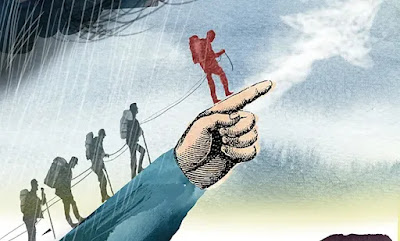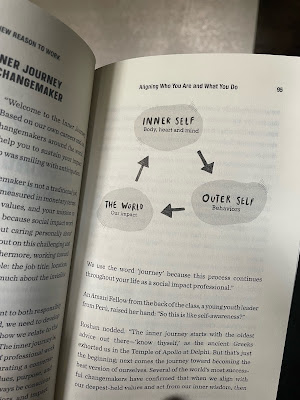The number one
Humans nowadays immerse themselves in a highly competitive environment and strive to be the best, the number one. Oftentimes, in many competitions, people place more importance on the first champion; the rest is just a number. Sometimes people fail to recognize that being in the top position does not guarantee overall success. This claim is aligned with the narrative surrounding Muhammad Hatta, who is often referred to as Bung Hatta, the inaugural Vice President of the Republic of Indonesia. Aside from the point of ‘number of not everything’, Bung Hatta’s life story can be a tangible sample of the authentic leader. This is the rationale behind the argument.
 |
| This is Bung Hatta, Bung! Photo credit to quora.com |
Getting to know him
Bung Hatta was born on August 12, 1902, in Bukittinggi, Sumatera Barat, Indonesia. While he studied in the Netherlands (1922–1922), he became the president of the Perhimpunan Indonesia (Indonesian Union), known today as Perhimpunan Pelajar Indonesia (Indonesian Student Union). Hatta has contributed to building the union not only as a regular-overseas union but also by leveling up the organization to be progressive and fostering a strong mission for the country.
As cited from Britannica.com, Hatta was arrested for his political activities by the Dutch in 1934 and sent to the rural area of Boven Digul, Papua. In 1935, he was exiled to the island of Banda Neira, where he remained until the eve of the Japanese invasion in World War II. Long story short, Hatta served as the first vice president with Soekarno from 1950 to 1956. One reason for his resignation was an increasing disagreement with President Soekarno's policy of “guided democracy”. This is also one great reason for the authenticity of Bung Hatta.
In many histories’ textbooks, Bung Hatta is often given less attention compared to Soekarno, the #1 leader at that period. In fact, Bung Hatta was a remarkable leader who contributed to the social-political-economic situation in Indonesia. One of them is his idea of the cooperative movement. He initiated the first model since Banda Neira’s exile. After getting back to the capital city, Bung Hatta, through his public address, always emphasizes the importance of cooperatives. Furthermore, because of Bung Hatta, there was the initial congress of cooperatives in Indonesia on July 12, 1947, and it became the National Day of Cooperatives until this date.
Bung Hatta: The values and the soul
However, it is vital to consider the personal experiences that influenced Bung Hatta's character today, since they contribute to his position as an authentic leader. Shamir and Eilam (2005) define an authentic leader as possessing self-knowledge and a personal point of view that reflects clarity about their values and convictions. They also portrayed themselves as identifying strongly with their leadership role, expressing themselves by enacting that role, and acting on the basis of their values and convictions.
The undocomented story of Bung Hatta has been captured in several knowledge products, such as books and documentary videos. “Indonesia Free: A Political Biography of Mohammad Hatta”, “Untuk Negeriku”, or “Satu Abad Bung Hatta”—you named it. Nevertheless, there was an untold personal story from Hatta’s children produced by a program named Untold Story at Metro TV Indonesia entitled Melihat Keteladanan Bung Hatta (Finding out the inspirational role of Bung Hatta).
According to his children, Bung Hatta is a courageous and integrating figure. Gemala Hatta, the second daughter of Hatta, states that her father consistently separates personal and professional needs, for example, housekeeping management. “My father did not allow her secretary to use a paper from his office for personal use,” said Gemala. In addition, she said that she and her sisters were not allowed to use the VP car for personal needs.
In addition, Meutia, Hatta’s firstborn, told the audience about Hatta’s bravery. Aside from his bravery to step down in 1956, Hatta oftentimes, said Meutia, sent critique letters to Soekarno. The letter's intention was not to strike his partner but to build better connections and, more importantly, better decisions for the country. Meutia never declares it clearly, but from the story, it shows that Hatta is a brave leader. Hatta possesses a firm standpoint and exhibits solid confidence in articulating it.
Bung Hatta also represents a leader who has a purposeful mindset. He has a vision; it was clear: an inclusive and just social-economic society. His ideas—some of them—have derived from his initiative in reforming the Indonesian Union movement and the cooperative idea for the country. And all of the vision has a strong base: his true self, the authentic one.
To sum up, from Bung Hatta, people may learn the concrete values needed to become authentic leaders. The leader must be inclusive, involving as many people as possible and leaving no one behind; the leader must be integrated, having strong moral principles; the leader must be intrepid, have a clear vision, and never hesitate to defend justice. Furthermore, and importantly, the authentic leader is someone who believes in and is themselves; there is no need to be the number one, but to build their own story and history.
“Indonesia tidak akan bernyala karena obor besar di Jakarta, melainkan karena lilin-lilin dari desa,” -Muhammad Hatta.



Komentar
Posting Komentar